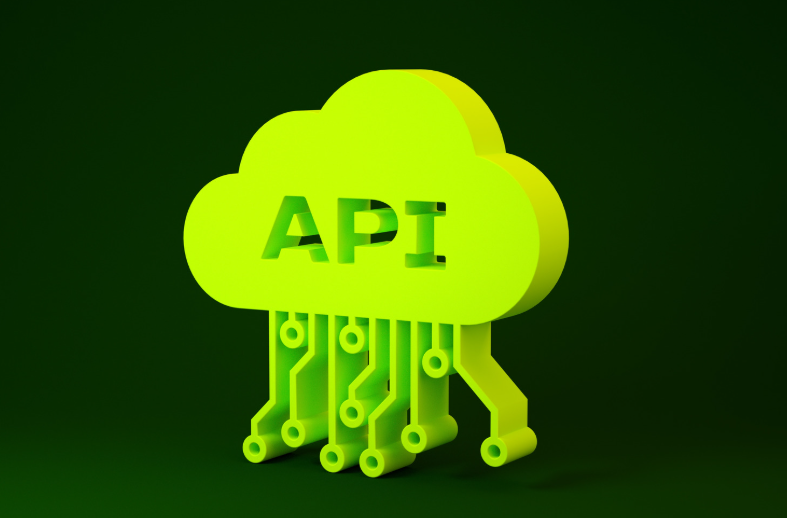
What Is an API, and Why Should You Care?
September 5, 2025
If you’ve ever used an app to check the weather, book a ride, or order food, you’ve interacted with an API. You just might not have realized. But what exactly is an API, and why does it matter to your business?
What Is an API?

API stands for Application Programming Interface. You can think of it as a digital menu that lets one software system talk to another.
Imagine you’re at a restaurant. You don’t walk into the kitchen to make your food, that would be weird. You use a menu to select the food you want and then place your order with the server. The server takes that request to the kitchen, where it is prepared and sent to you.
That’s how APIs work:
- You (the user) make a request.
- The API (the menu) tells the system what you want.
- The server (the kitchen) processes it and sends back the result.
Real-Life Examples of APIs
We use APIs all the time. Chances are, you use them every day. Here are a few ways APIs show up in your daily life:
- Google Maps in a travel app: The app doesn’t build its own map. It uses Google’s API to embed directions.
- Weather widgets: Your phone’s weather app pulls data from a weather service API.
- Online payments: E-comm sites use APIs to connect with payment gateways like Stripe or PayPal.
Why Should Businesses Care?
APIs aren’t just for developers. They’re strategic tools that help businesses save time and money by reusing existing services, scale faster by integrating with platforms like Salesforce, HubSpot, or Shopify, and improve the customer experience by connecting systems seamlessly (e.g., booking systems, notifications, personalization).
Understanding APIs helps you make smarter decisions.
How APIs Encourage Innovation
At Improving, we use APIs to connect legacy systems with modern platforms; build modular, scalable solutions for clients; and enable real-time data sharing across departments.
You can think of APIs as the backbone of digital transformation. They allow businesses to innovate without starting from scratch.
Are APIs Safe?
Security, rightfully so, is always a top concern for business owners and decision makers. There are aspects of APIs that signal whether they are well designed or not. A well-designed API includes:
- Authentication (verifying who’s making the request).
- Authorization (checking what they’re allowed to do).
- Rate limiting (preventing abuse or overload).
When implemented correctly, you can count on APIs to be both powerful and secure.
Conclusion
APIs may sound technical, but their impact is universal. As a non-technical person myself, I found learning about APIs pretty easy to understand. They’re the invisible connectors that make modern technology work. They’re essential for any business looking to grow, adapt, and innovate.
Curious about app development? Need a custom business application? Get in touch by filling out the form at the bottom of the page.
Thanks for reading! Make sure to subscribe to our blog. We publish technology tips, tricks, and updates every week.
Want to hear the latest from out team of experts? Sign up to receive the latest news right to your inbox. You may unsubscribe at anytime.

Discover More
Integration Between Power Platform and SharePoint Encourages Innovation
Organizations are focusing on innovation, streamlining their processes, and delivering better experiences for employees and customers. Power Platform and SharePoint are the Microsoft products that are helping organizations focus on…
Mastering Subagents in VS Code + Copilot: How To Actually Use Them
If you’ve ever dumped a giant problem into Copilot Chat and watched the conversation slowly turn into spaghetti, subagents are the feature you’ve been waiting for. Think of subagents as…
5 Common Misconceptions About Cloud Migration: Debunking the Myths
We’ve all heard of the cloud and cloud migration. But how important is it actually for your business? Organizations are moving to the cloud for several reasons: to improve agility,…

Let’s build something amazing together
From concept to handoff, we’d love to learn more about what you are working on.
Send us a message below or call us at 1-800-989-6022.





